Egypt and the Netherlands: working together on development and trade
Egypt has seen a tremendous growth in agricultural activity since the 1990s. In the last 60 years, wheat harvests per hectare have increased more than fivefold. In addition, the country has become a major exporter of fruits and vegetables. Agriculture in Egypt is big business, says Omar Abdellatif. Not only in terms of money but especially in terms of adding value to the lives of small farmers and poor local people. Abdellatif is working as an agricultural advisor at the Netherlands Embassy in Cairo. This article is part of a series on the agricultural advisors who play a key role in the Netherlands Agricultural Network (LAN) worldwide.
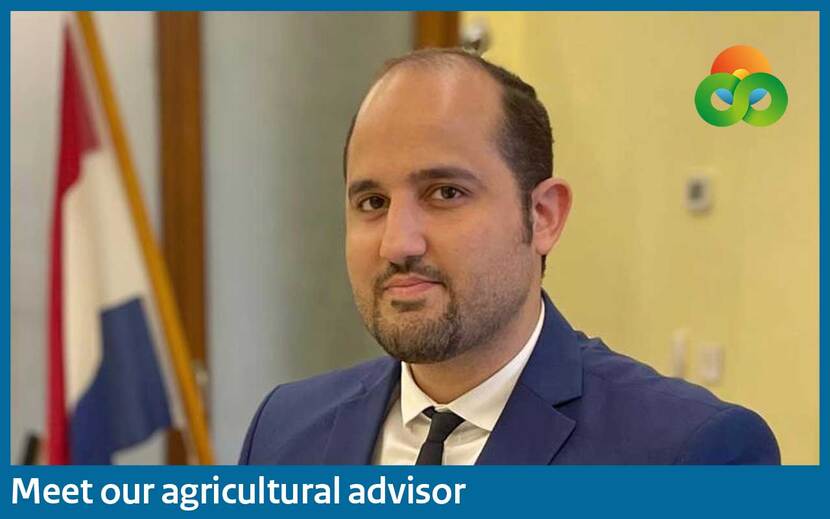
Omar Abdellatif has had quite the career. Over the last 12 years, he has worked in various projects and agencies like the United Nations Development Program (USAID) and several governmental agencies in the area of sustainable development, rural development and agribusiness management. Before that, he was a professional basketball player. He lived in Malaysia, Denmark, Italy and the Netherlands and during that time he earned a master's degrees in organic agriculture in Bari (Italy). At the moment, he is working on another master's in sustainability science and policy in Maastricht (the Netherlands).
Can you tell us a bit about yourself?
‘I am a firm believer that anything is possible. I have no limits or fears and never give up. For example, I once applied for a scholarship, but it was denied. In the end, it took me 17 times to get it, but I succeeded. My family has a long history with the Netherlands. In 1974 my dad lived and received several trainings in the Netherlands as well. I am very fond of Dutch culture. The Dutch are quite flexible and efficient. I love that about them.’
‘I also believe that I have a big purpose in life. I am a great admirer of Nobel Prize winner Muhammad Yunus, who founded the Grameen Bank and pioneered the concepts of microcredit and microfinance. He has taught me to use knowledge to add value to people's lives. Another inspiration is American author Stephen Covey. In particular, his book The 8th Habit which is about finding your voice and inspiring others to find theirs.
Jan Rotmans, professor in sustainability transitions at DRIFT institute in Rotterdam inspired me with his books about long term transformative change, and changed my way of thinking about the future and how to deal with complex challenges. You need knowledge to create impact. But knowledge alone is not enough. You have to cooperate with the private sector, policy makers, NGO's and other stakeholders. By building a strong network you can create a strong impact.’
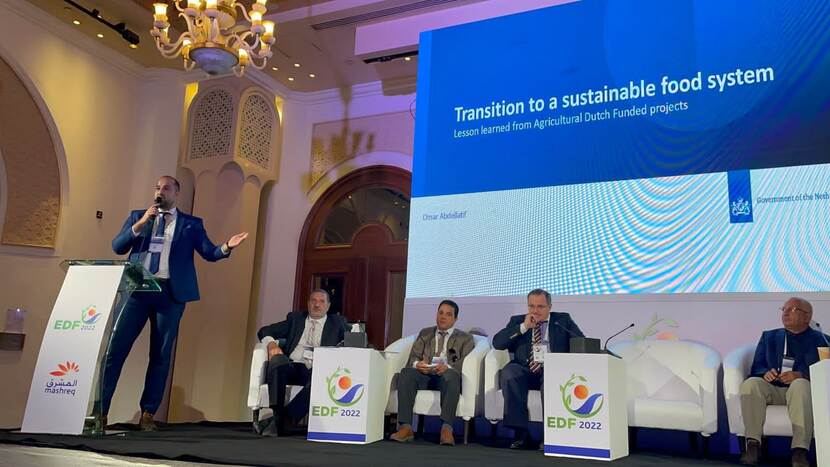
What is it like to be an agricultural advisor?
‘I have been working for the Netherlands embassy in Egypt since 2020. For me, my job is about being an intermediate between the Netherlands and Egypt. It can be difficult for Dutch people to get about in Egypt. I can help to prevent any cultural misunderstandings.
But there's more to my job than solving problems that might happen with the Egyptian authorities. I'm here to advise on what is applicable in an Egyptian context and what is not You cannot simply copy and paste ideas or projects from the Netherlands to Egypt.
You have to customize them to the local context. And you have to look for the right opportunities and partnerships. Beside this, part of my role is supervising different Dutch funded projects and working closely with other departments in the embassy to create more synergies to maximise the impact of Dutch programs on the ground.’
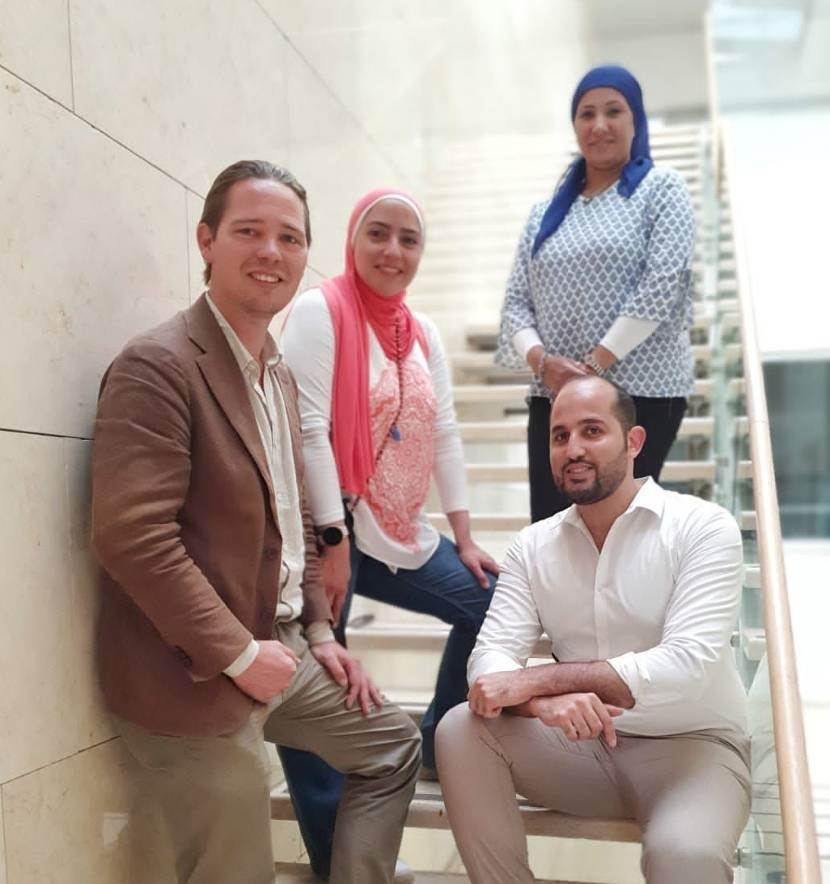
How important are farming and agriculture for Egypt?
‘Agriculture is big business in Egypt, for reasons of food security, obviously. Is it possible to live without eating or drinking? No, you can't. But we face some difficulties and political challenges. Another issue that we are working on is fragmentation of farmland. You know: one farmer has three sons. Each son inherits a third of his father's land. That way you end up with farms that get smaller and smaller. The question is: how we can bring small farmers together? We believe that it might help Egypt and its people a lot if we succeed to consolidate land. Changes like that are adding value to the lives of small farmers and poor local people.’
‘We are actively promoting opportunities to get Dutch companies and universities to work with Egyptian partners’
How can the Netherlands be of assistance?
‘You already are. With seeds, for example. Seeds are very important for Egypt. Dutch seed companies are working on different breeding programs for new varieties that can withstand climate change or thrive under saline conditions. This is all happening at this very moment. You're also helping with agricultural technologies and food system transformation. Wageningen University is doing important work on that. But again, you cannot copy and paste things from the Netherlands to Egypt. That's why partnerships are so important. The Dutch Diamond Approach, in which the government cooperates with the sector, research centres and NGOs to find sustainable solutions, could stimulate different partners and help create a common vision. We are actively promoting opportunities in the area of sustainable agriculture and resilient seeds to get Dutch companies and universities to work with Egyptian partners.’
What's in it for the Netherlands?
‘Obviously, there are business opportunities. But also, opportunities to build knowledge and expertise, of course. If you invest in that, you invest in people that will be able help Dutch companies in the future. But there's also an ethical aspect. As a developed country it is important to help other countries that are less developed. It is important to help Egypt sustain itself and produce food by ourselves and for ourselves in a sustainable way.
At the moment we are in the process of organizing a Dutch Pavilion at the Wadi Expo in May. And an impact cluster on open cultivation will start to connect demonstration activities in the Nile Delta with development activities in Upper-Egypt. In addition, a Partners for International Business (PIB) plan on protected cultivation is to be announced at the Sahara Expo. A cluster of seed companies, linked to SeedNL, is working on a number of collective activities to facilitate investment in development and access to climate resilient seeds. And we are co-organizing a trade mission on waste management with our colleagues in the trade department and the Netherlands-African Business Council (NABC). Beside the upcoming trade missions, we are supporting the new combi track that focusses on climate and water smart agriculture.’
Waste processing and circular economy mission to Egypt
This mission is organised by Netherlands Enterprise Agency (RVO) and the Embassy of the Kingdom of the Netherlands in Cairo, in cooperation with Handelsroute and NABC as implementing partners, from 12 - 16 March 2023.
Follow this link for more information and registration.
How do climate change and sustainability affect your work?
‘Well, COP27 was a big event last year, but the results were a bit disappointing as far as mitigation measures were concerned. Climate change is a threat to us all, not just Egypt. So, we have to work together. Like I mentioned earlier, the Dutch Diamond Approach is important. It is not just a matter of G2G. In particular, the private sector can play an important part. Egypt was recently designated by the Dutch government as a so-called combination country for development cooperation and trade. We call that: from aid to trade.’
During COP 27 and Sahara Expo
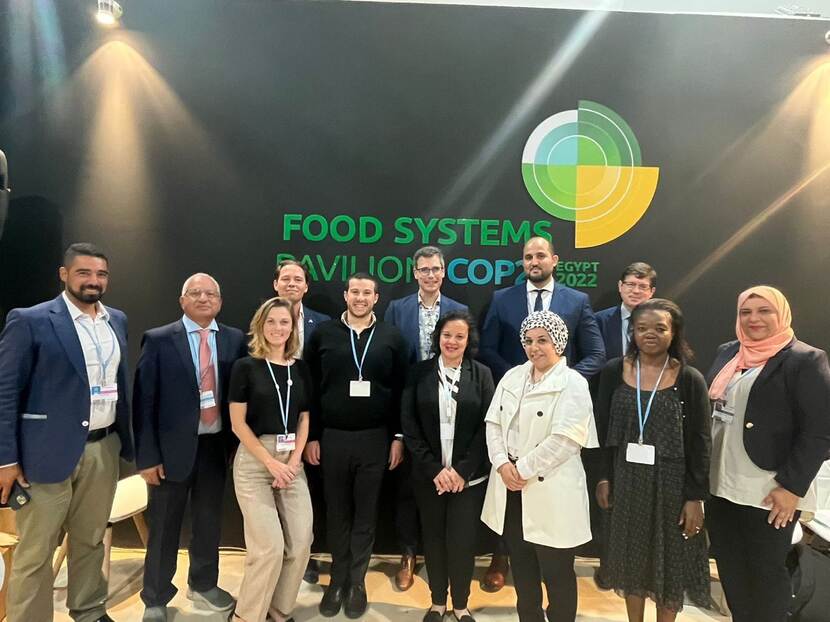
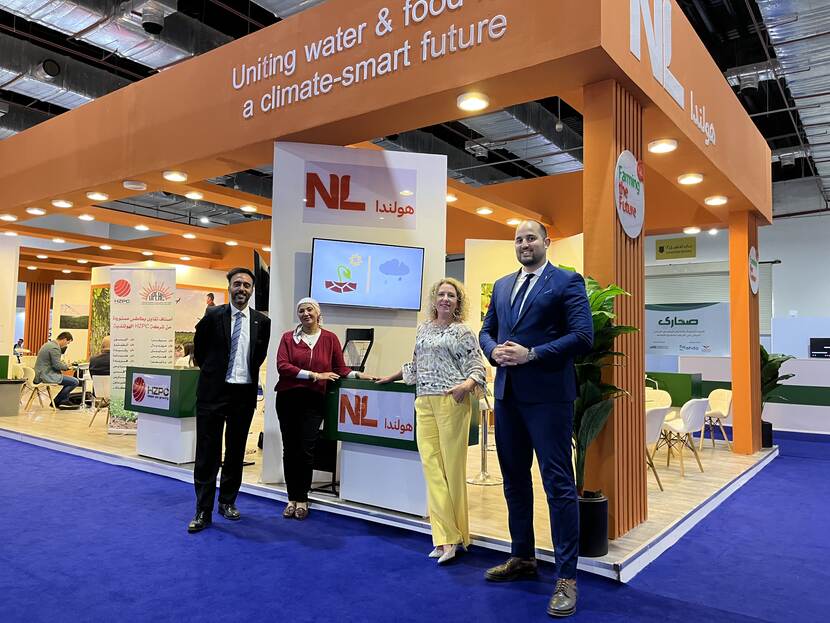
Is there anything else that you want our readers to know?
‘I am super happy to be a civil servant and be a part of an inspiring team and a big family as part of the embassy and the Netherlands Agricultural Network. And to be playing a role that creates opportunities that benefit both Egypt and the Netherlands. Brokering and bringing people together is a privilege for me and makes me proud.’
Contact
Join the NL- Masr Agri-food Network to follow upcoming events. Follow Omar Abdellatif on LinkedIn. If you have any questions about Egypt, you can send an email to KAI-LNV@minbuza.nl or Omar.abdellatif@minbuza.nl